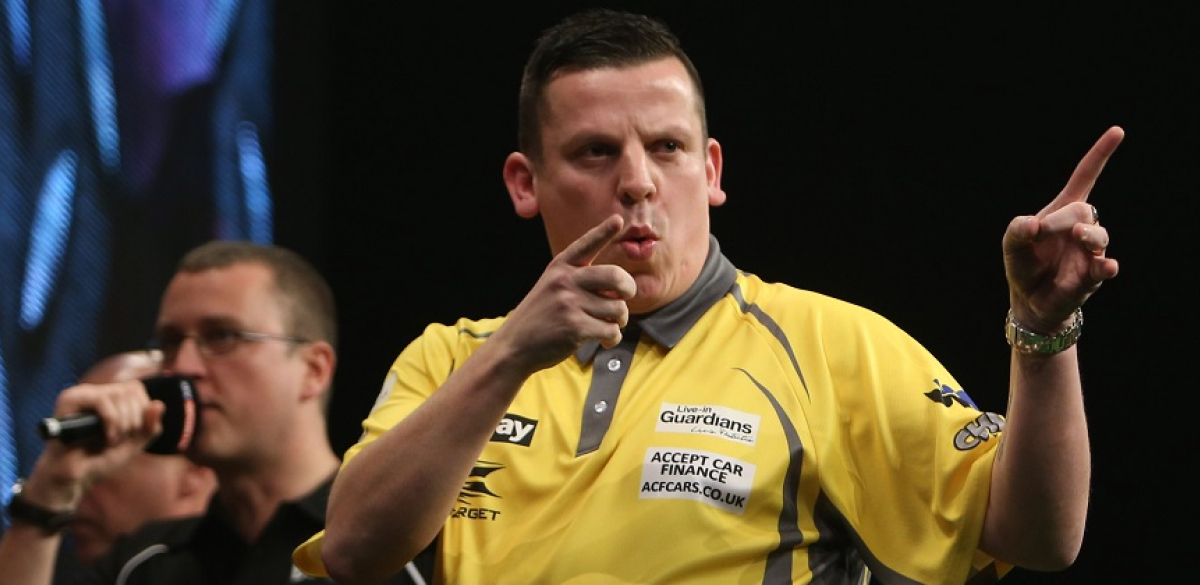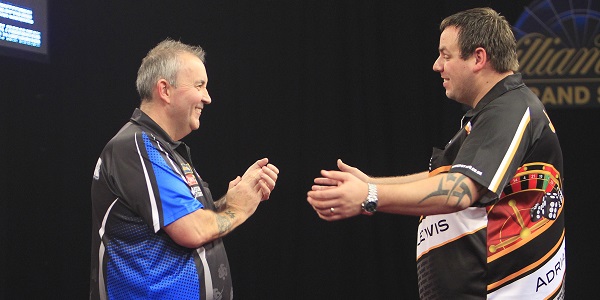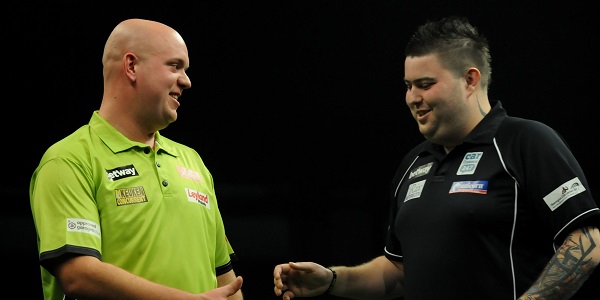
Christopher Kempf, the statistical analyst of the PDC, looks at Dave Chisnall's European Tour record average in the German Darts Championship.
LIKE waves cresting near the top of a seawall, players are inching closer and closer toward breaking the world record TV average.
The high-water mark of 123.40 looks more vulnerable with every passing tournament, and we may be very near to seeing it eclipsed.
Last weekend the European Tour's high match average, a record held for over three-and-a-half years by Michael van Gerwen, was eclipsed by Dave Chisnall's staggering 118.66, which also tied the English record for a stage match and was the second highest ever seen by a crowd outside the United Kingdom.
Across the PDC's many events, at least 25 players have recorded a 110+ average this year.
The highest average of 2018, moreover, belongs to a player who failed to win a Tour Card at the 2018 Qualifying School, Jamie Hughes.
His 125.25 average in a 6-0 thrashing of Robbie Green, were it not for the relative obscurity of the European Tour UK Qualifier in which it was recorded, would have put the name Jamie Hughes on the mind of every darts fan.
A high average in a match is not inherently meaningful, especially if the match ends in a 6-0 scoreline and an average 20 points lower would have sufficed to dispatch the opponent in question.
Does the fact that MvG's 117.94 average - the old European Tour record from 2015 - was recorded over eight legs, in a final, against an opponent in Gary Anderson who averaged 104, outweigh Chisnall's higher average, which encompassed six legs of a second round match in which his opponent averaged 85?
After all, Chisnall did not earn any additional prize money for his high average, and his place in the record books thanks to his dazzling display on September 1 was merely consolation after a quarter-final exit on the next day to Van Gerwen.
Context is important, but subjective; because so many high-average matches end in uncompetitive 6-0 whitewashes, many will regard them as less significant than longer or more tensely fought contests.

That is why Chisnall's 118.66 average will likely be remembered as a statistical curiosity, while Phil Taylor's 109.76 at the Grand Slam in his classic semi-final with Adrian Lewis is often remembered, even at the short remove of five years, as one of the best matches ever played.
What will it take for a player to beat Van Gerwen's televised record, and how likely are we to see it broken any time soon?
Let's consider the most likely possibility - that Van Gerwen, responsible for half of the 110+ averages on stage in the PDC, will surpass his own record.
To do so, he will need to aim to average a 12-darter over the course of the match, as 501 points scored with 12 darts yields a three-dart average of 125.25.
Win or lose, the Dutchman records an average in an individual leg that keeps him on pace for the world record about once every four legs.
Despite the fact that he could afford a 14-darter if he wins another leg in ten darts, we arrive at a figure suggesting that the world number, based on his 2018 statistics and accounting for the sporadic likelihood of his entering a "purple patch" of extreme darting accuracy, is likely to win a best-of-11 match with a world record average about 0.05% of the time - or once every 2,000 matches.
Rare and unlikely events are by nature difficult to predict accurately, but with several other players apporaching this level of production and playing hundreds of broadcasted matches each year, a new world record may only be a year or two away.

This analysis, and general focus on TV match averages as the ultimate measure of player performance, ignores the amazing achievements of players in floor events, within matches, and in longer-format events that fall short of reaching the magic number 123.40 - or surpass it quietly.
If Van Gerwen is as unlikely as it seems to break the world record on his own, recall that he missed a dart in the world record match to defeat Michael Smith 7-0, not 7-1, allowing an opportunity to average 133.18, and set a record that may have stood for decades, to pass him by.
Had the match been played to best-of-11 rather than best-of-12, Van Gerwen would have finished the match on a ten-darter, averaging 136.41.
Though it is maybe more impressive than the world record itself, the fact that the first six legs of that match were the best six ever played disappears amidst the mild disappointment of the match's conclusion!
Speaking of a record that may stand for decades, Kyle Anderson may well have set one in the obscurity of a 2015 Players Championship match in which he used 77 darts to score 3,461 points, averaging 134.84 over seven legs.
The likelihood of even Van Gerwen reaching that level in the near future is incredibly small, especially as he has yet to win a match with a 115 average in 2018.
Indeed, the odds are very much against Van Gerwen, or any other top player, beating that record even if they played non-stop for 100 years.
A similarly untouchable achievement is Van Gerwen's 114.05 average against Raymond van Barneveld in the 2017 World Championship semi-finals, a monumental achievement of both accuracy and endurance in one of the best matches ever seen on the Alexandra Palace stage.
While 114 is, of course, an average witnessed in the PDC almost every other week, no-one before or since has ever managed to hold himself to such a standard over such a long distance.
In fact, Van Gerwen is thousands of times more unlikely to surpass 114 over 32 legs than he is to break the world record average in six.
All of this is not to mention that in the second set of that match between, the two Dutch masters combined to average nearly 122.
Even if you have to look a little harder to find them, moments like those deserve to be considered in the same breath as the world record average - and may be even more impressive to relive.